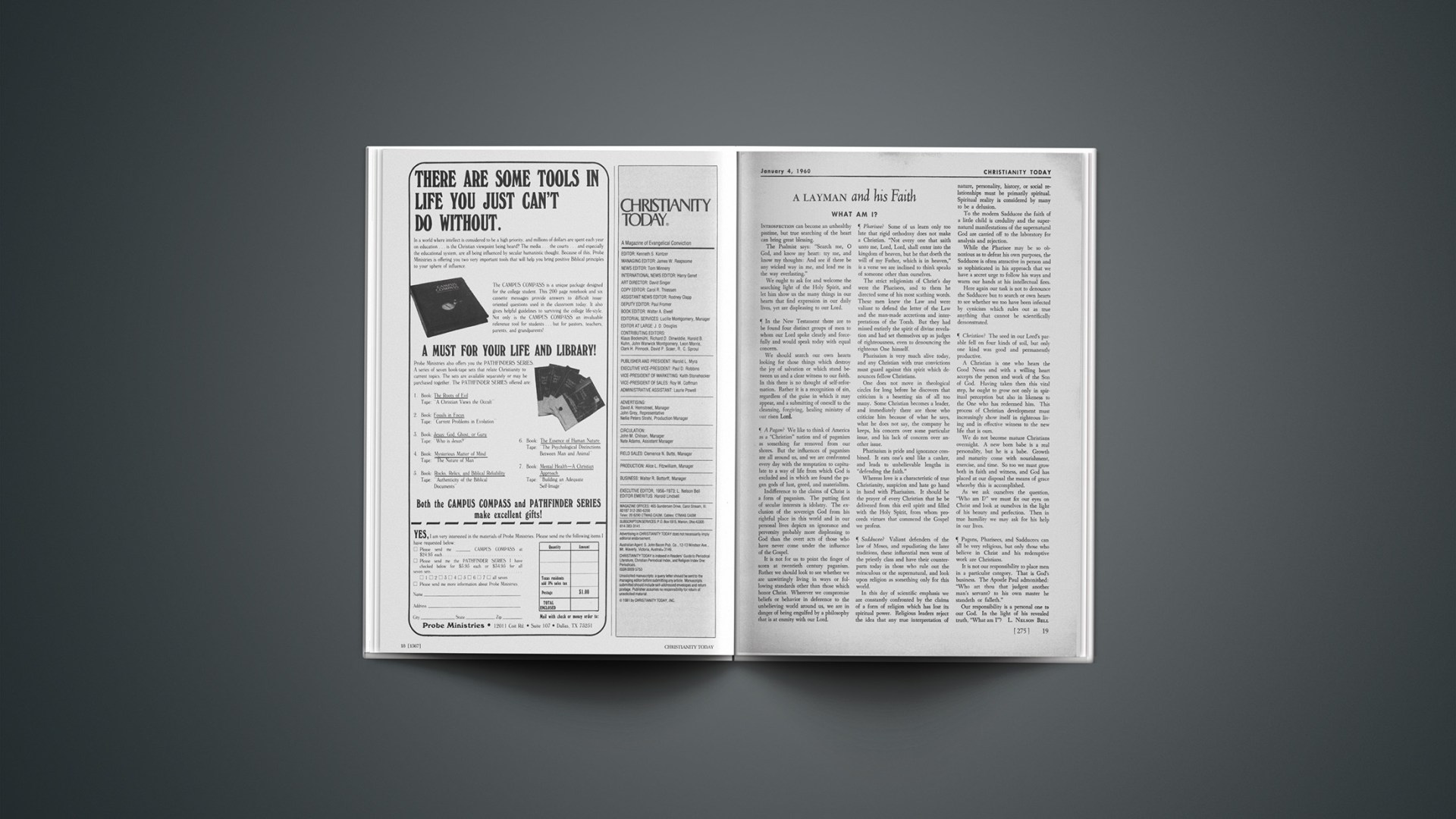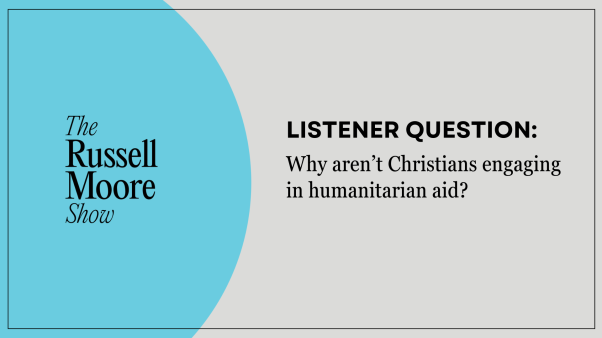WHAT AM I?
Introspection can become an unhealthy pastime, but true searching of the heart can bring great blessing.
The Psalmist says: “Search me, O God, and know my heart: try me, and know my thoughts: And see if there be any wicked way in me, and lead me in the way everlasting.”
We ought to ask for and welcome the searching light of the Holy Spirit, and let him show us the many things in our hearts that find expression in our daily lives, yet are displeasing to our Lord.
In the New Testament there are to be found four distinct groups of men to whom our Lord spoke clearly and forcefully and would speak today with equal concern.
We should search our own hearts looking for those things which destroy the joy of salvation or which stand between us and a clear witness to our faith. In this there is no thought of self-reformation. Rather it is a recognition of sin, regardless of the guise in which it may appear, and a submitting of oneself to the cleansing, forgiving, healing ministry of our risen Lord.
A Pagan? We like to think of America as a “Christian” nation and of paganism as something far removed from our shores. But the influences of paganism are all around us, and we are confronted every day with the temptation to capitulate to a way of life from which God is excluded and in which are found the pagan gods of lust, greed, and materialism.
Indifference to the claims of Christ is a form of paganism. The putting first of secular interests is idolatry. The exclusion of the sovereign God from his rightful place in this world and in our personal lives depicts an ignorance and perversity probably more displeasing to God than the overt acts of those who have never come under the influence of the Gospel.
It is not for us to point the finger of scorn at twentieth century paganism. Rather we should look to see whether we are unwittingly living in ways or following standards other than those which honor Christ. Wherever we compromise beliefs or behavior in deference to the unbelieving world around us, we are in danger of being engulfed by a philosophy that is at enmity with our Lord.
Pharisee? Some of us learn only too late that rigid orthodoxy does not make a Christian. “Not every one that saith unto me, Lord, Lord, shall enter into the kingdom of heaven, but he that doeth the will of my Father, which is in heaven,” is a verse we are inclined to think speaks of someone other than ourselves.
The strict religionists of Christ’s day were the Pharisees, and to them he directed some of his most scathing words. These men knew the Law and were valiant to defend the letter of the Law and the man-made accretions and interpretations of the Torah. But they had missed entirely the spirit of divine revelation and had set themselves up as judges of righteousness, even to denouncing the righteous One himself.
Pharisaism is very much alive today, and any Christian with true convictions must guard against this spirit which denounces fellow Christians.
One does not move in theological circles for long before he discovers that criticism is a besetting sin of all too many. Some Christian becomes a leader, and immediately there are those who criticize him because of what he says, what he does not say, the company he keeps, his concern over some particular issue, and his lack of concern over another issue.
Pharisaism is pride and ignorance combined. It eats one’s soul like a canker, and leads to unbelievable lengths in “defending the faith.”
Whereas love is a characteristic of true Christianity, suspicion and hate go hand in hand with Pharisaism. It should be the prayer of every Christian that he be delivered from this evil spirit and filled with the Holy Spirit, from whom proceeds virtues that commend the Gospel we profess.
Sadducee? Valiant defenders of the law of Moses, and repudiating the later traditions, these influential men were of the priestly class and have their counterparts today in those who rule out the miraculous or the supernatural, and look upon religion as something only for this world.
In this day of scientific emphasis we are constantly confronted by the claims of a form of religion which has lost its spiritual power. Religious leaders reject the idea that any true interpretation of nature, personality, history, or social relationships must be primarily spiritual. Spiritual reality is considered by many to be a delusion.
To the modern Sadducee the faith of a little child is credulity and the supernatural manifestations of the supernatural God are carried off to the laboratory for analysis and rejection.
While the Pharisee may be so obnoxious as to defeat his own purposes, the Sadducee is often attractive in person and so sophisticated in his approach that we have a secret urge to follow his ways and warm our hands at his intellectual fires.
Here again our task is not to denounce the Sadducee but to search or own hearts to see whether we too have been infected by cynicism which rules out as true anything that cannot be scientifically demonstrated.
Christian? The seed in our Lord’s parable fell on four kinds of soil, but only one kind was good and permanently productive.
A Christian is one who hears the Good News and with a willing heart accepts the person and work of the Son of God. Having taken then this vital step, he ought to grow not only in spiritual perception but also in likeness to the One who has redeemed him. This process of Christian development must increasingly show itself in righteous living and in effective witness to the new life that is ours.
We do not become mature Christians overnight. A new born babe is a real personality, but he is a babe. Growth and maturity come with nourishment, exercise, and time. So too we must grow both in faith and witness, and God has placed at our disposal the means of grace whereby this is accomplished.
As we ask ourselves the question, “Who am I?” we must fix our eyes on Christ and look at ourselves in the light of his beauty and perfection. Then in true humility we may ask for his help in our lives.
Pagans, Pharisees, and Sadducees can all be very religious, but only those who believe in Christ and his redemptive work are Christians.
It is not our responsibility to place men in a particular category. That is God’s business. The Apostle Paul admonished: “Who art thou that judgest another man’s servant? to his own master he standeth or falleth.”
Our responsibility is a personal one to our God. In the light of his revealed truth, “What am I”?
L. NELSON BELL










